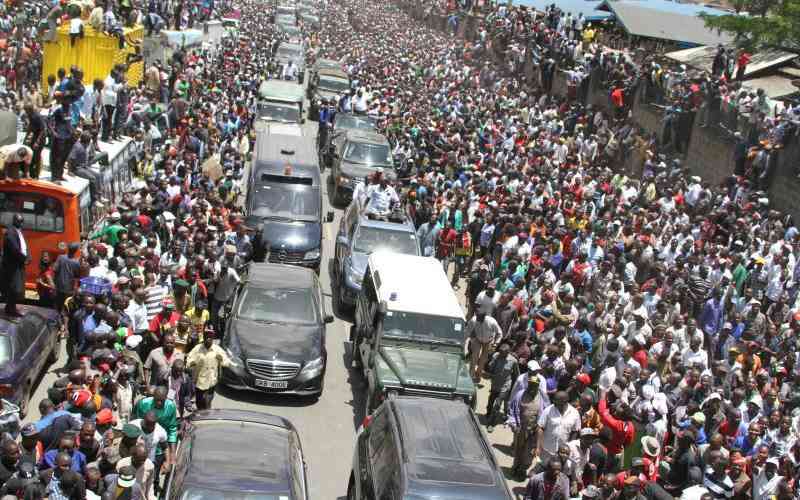
The story of Uhuru Kenyatta's rise to the presidency is incomplete without the mention of the International Criminal Court (ICC) and how it nearly stopped his bid in 2013.
Uhuru, alongside then Eldoret North MP William Ruto, were charged with crimes against humanity stemming from the 2007-2008 post-election violence. The prosecution, led by Luis Moreno-Ocampo had accused them of bearing greatest responsibility in the chaos, which led to rape, murders and forcible transfer of populations following the disputed presidential election between Mwai Kibaki of PNU and ODM's Raila Odinga.